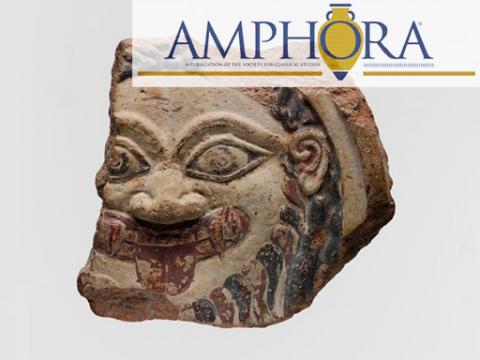SCS Blog Author Page
Posts by Tom Kohn

|
Amphora: Tartarus and the Curses of Percy Jackson (or Annabeth’s Adventures in the Underworld)
This article was originally published in Amphora 12.1. It has been edited slightly to adhere to current SCS blog conventions. A few years ago, I adopted the Anthology of Classical Myth, edited by SM Trzaskoma, RS Smith, and S Brunet (Hackett, 2004), for my Greek and Roman mythology course. And so, some months before the start of the semester, I read through the text, in order to familiarize myself with the selections. At the same time, I began to read the Percy Jackson and the Olympians series by Rick Riordan. I was amazed by the degree to which the two complemented each other. I like to drive home to my students the point that writers in antiquity did not feel obligated to adhere to one particular version of a myth (for example, the various depictions of Prometheus by Aeschylus, Hesiod, and Plato), and in fact both retained certain details and also made certain changes based on Read more … |
Tartarus and the Curses of Percy Jackson (or Annabeth’s Adventures in the Underworld)
by Thomas D Kohn A few years ago, I adopted the Anthology of Classical Myth, edited by SM Trzaskoma, RS Smith, and S Brunet (Hackett, 2004), for my Greek and Roman mythology course. And so, some months before the start of the semester, I read through the text, in order to familiarize myself with the selections. At the same time, I began to read the “Percy Jackson and the Olympians” series by Rick Riordan. I was amazed by the degree to which the two complemented each other. I like to drive home to my students the point that writers in antiquity did not feel obligated to adhere to one particular version of a myth (for example, the various depictions of Prometheus by Aeschylus, Hesiod, and Plato), and in fact both retained certain details and also made certain changes based on their literary agenda. Part of the delight, therefore, in reading renditions of Greek myth, both ancient and modern, lies not in labeling departures as “wrong,” but in comparing them Read more … |
